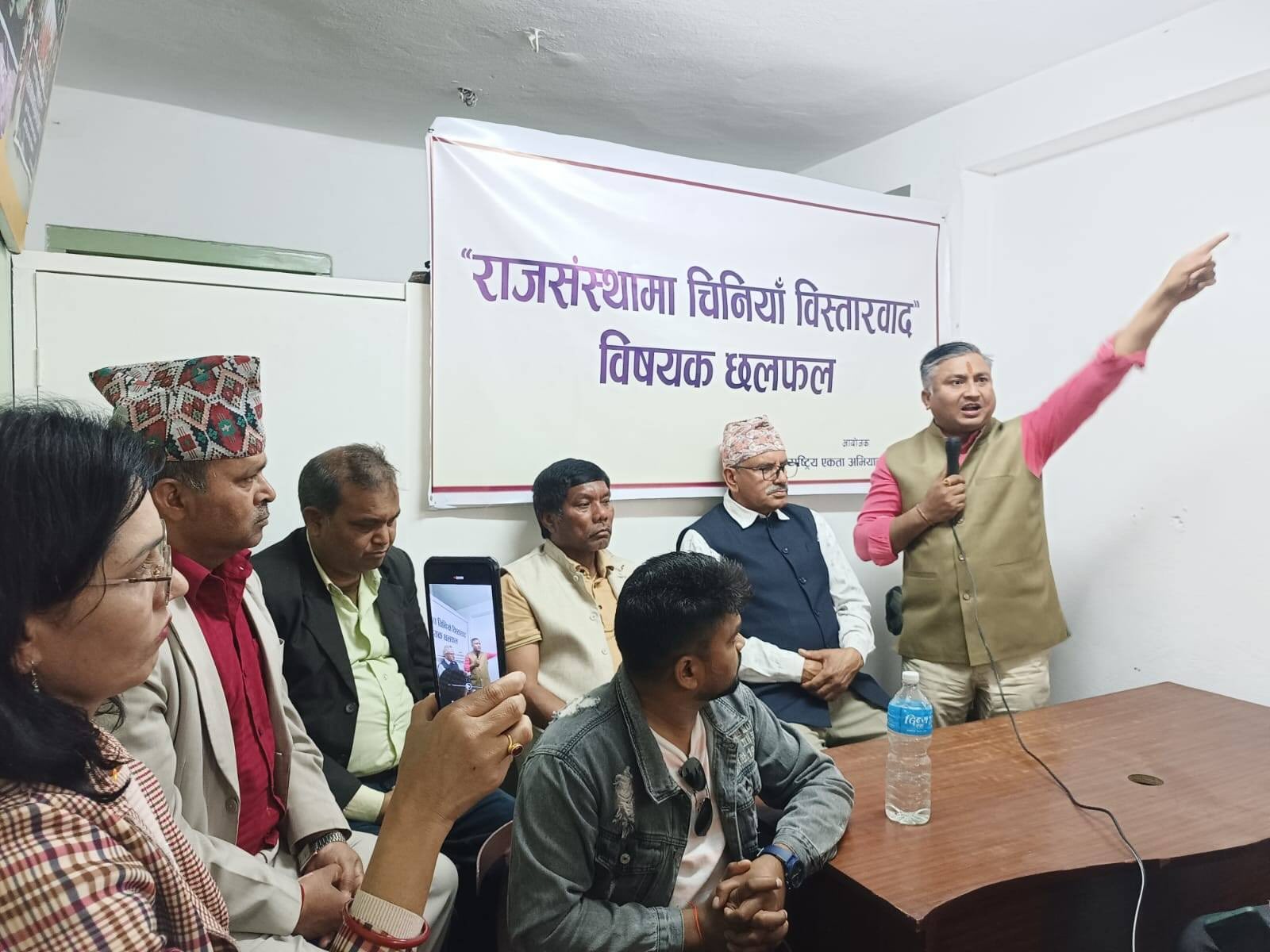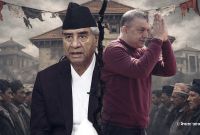'Demand for Monarchy’s Revival Aims to Institutionalize Chinese Expansionism'

Kathmandu — Vinay Yadav, the Chairperson of Rastriya Ekata Abhiyan (the National Unity Campaign), has asserted that the underlying purpose behind the recent push for reinstating Nepal’s monarchy is to institutionalize Chinese expansionism in the country.
He made these remarks during a special discussion program titled “Chinese Expansionism within the Monarchy,”organized by the National Unity Campaign in Kathmandu. The event brought together analysts, political figures, academics, activists, and artists to examine how policy decisions made by Nepal’s monarchs have historically aligned with China’s strategic interests.
Historical Decisions Favoring China
Presenting the keynote paper, Binod Singh, Coordinator of the Madhesh Province Contact Committee, traced how successive monarchs—from Prithvi Narayan Shah to Gyanendra Shah—made decisions that strengthened Chinese influence in Nepal. Singh provided historical examples and diplomatic contexts, such as:
-
Bahadur Shah's intervention in Tibet, which dragged Nepal into the Chinese sphere;
-
King Mahendra’s signing of the Nepal-China border agreement, which allegedly compromised Nepal’s strategic autonomy;
-
King Gyanendra’s attempt to make China a permanent member of SAARC, thereby placing Nepal at the heart of the India-China strategic rivalry.
These acts, Singh argued, served China’s long-term geopolitical interests more than Nepal’s.
Yadav’s Accusations Against the Monarchy
Endorsing the points raised in the paper, Chairperson Yadav stated,
“The monarchy never made decisions in the public’s interest. It always aligned with foreign powers to protect its throne. Now, in the name of reviving the monarchy, there is an effort to ease China’s strategic entrenchment in Nepal.”
Yadav also expressed grave concern over China’s expanding influence in Nepal through investment, infrastructure, education, tourism, and media.
Speakers’ Critique of Past Monarchs
Speakers at the event scrutinized various monarchs’ actions:
-
Prithvi Narayan Shah’s trade expansion with Tibet marked the beginning of Chinese contact;
-
Bahadur Shah was coerced into signing a humiliating treaty with the Qing dynasty;
-
King Tribhuvan’s diplomatic relations with China were seen as a turning point in Nepal’s foreign policy imbalance;
-
King Mahendra’s boundary treaty with China was criticized for undermining Nepal’s strategic independence;
-
King Birendra’s “Zone of Peace” proposal gained Chinese support but increased Nepal’s dependency.
According to analysts, King Gyanendra’s push to include China as a permanent SAARC member deepened Nepal’s entanglement in sensitive regional dynamics, especially in the India-China rivalry. Speakers contended that these actions served China’s interests while compromising Nepal’s sovereignty and long-term goals.
Event Participation and Consensus
The discussion was moderated by Chandra Yaduvanshi, a central member of the campaign. Notable attendees included:
-
Dayaram Pandey (Chairman of Nepal Shankaracharya Peeth),
-
Dalit activist Narendra Paswan,
-
Hari Charan Sah (Chairperson of Nepali Janata Dal),
-
Bhupendra Chaudhary (Vice-Chair of the campaign),
-
Entrepreneur Laxmi Gyawali,
-
Professor Shambhu Dev,
-
Folk singer Raviraj Sah.
Conclusion: Monarchy Revival a Threat to Sovereignty
Participants reached a strong consensus: Nepal must learn from historical mistakes. The revival of monarchy could threaten the country’s sovereignty, political stability, and diplomatic balance. Therefore, they collectively emphasized the urgent need for Nepal to pursue an independent, balanced, and self-reliant foreign policy to secure its long-term national interests.





![From Kathmandu to the World: How Excel Students Are Winning Big [Admission Open]](https://nepalaaja.com/img/70194/medium/excel-college-info-eng-nep-2342.jpg)


